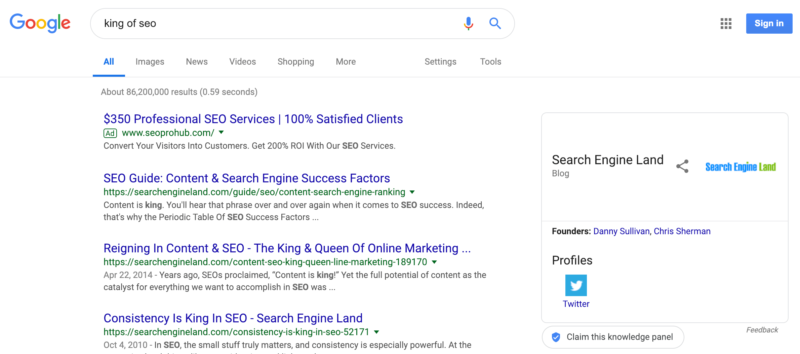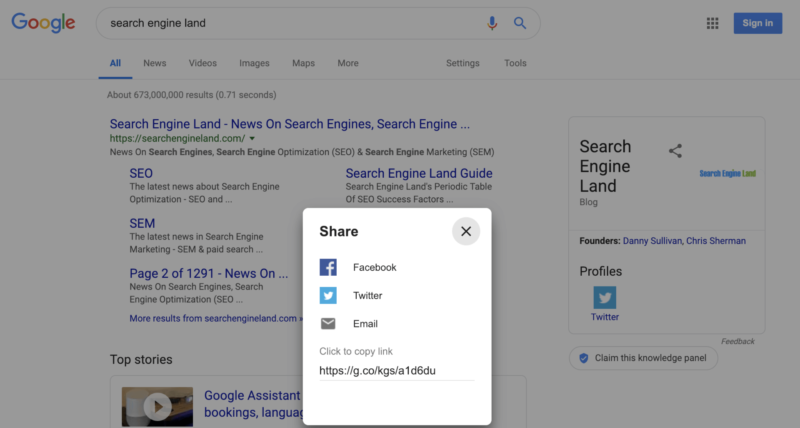Google working to disable knowledge graph hack that shows misleading search results
A knowledge panel manipulation technique is finally getting the search giant's serious attention.

An old knowledge graph trick we reported on in 2017 is getting a lot of attention now after more recent reports about how it can be used to manipulate, confuse and trick searchers. In short, it is possible to show any site for any query in the knowledge panel area.
How it works. Bring up a site’s knowledge panel in Google and click on the share link.

Copy and paste the link in the search bar and click go. It will take you to the same page. But the URL will have a new set of parameters, specifically something like this &kgs=55f82ac435f6919c&q=
Right after the q= is the original query, you can change it to anything. In the example above, I changed it to q=king+of+seo and clicked go. Then Google changed the search results box to say “king of seo.”

What Google told us. A Google spokesperson told Search Engine Land, “We share the concern about the potential for bad actors to create misleading distortions of our search results pages, and are working to fix this issue.”
We believe Google is now working on preventing this sort of manipulation in the search results. But we do not know how long it will take to resolve. Google has been aware of the issue for years but seems to now only be acting on it.
Why it matters. Anyone can claim that they rank number one for any query by sharing links on social media, sending an email with a link to a Google search results page, or other method. The technique could be used in a variety of questionable and alarming ways: to show search results to fraudulently impress prospects, to trick people into thinking one site is an official site for a query, to perpetuate fake news or facts or much worse.
People are sharing both funny and worrisome examples online of this manipulation in action:
I knew it! The most popular product ever created is… the chia pet. Google tells me that so it must be true. :) I wonder how many companies will start sharing these hacked urls to promote their products. Again, this is crazy. https://t.co/aQswAKpLB7 pic.twitter.com/8ArkfTSm5A
— Glenn Gabe (@glenngabe) January 9, 2019
Related stories
New on Search Engine Land